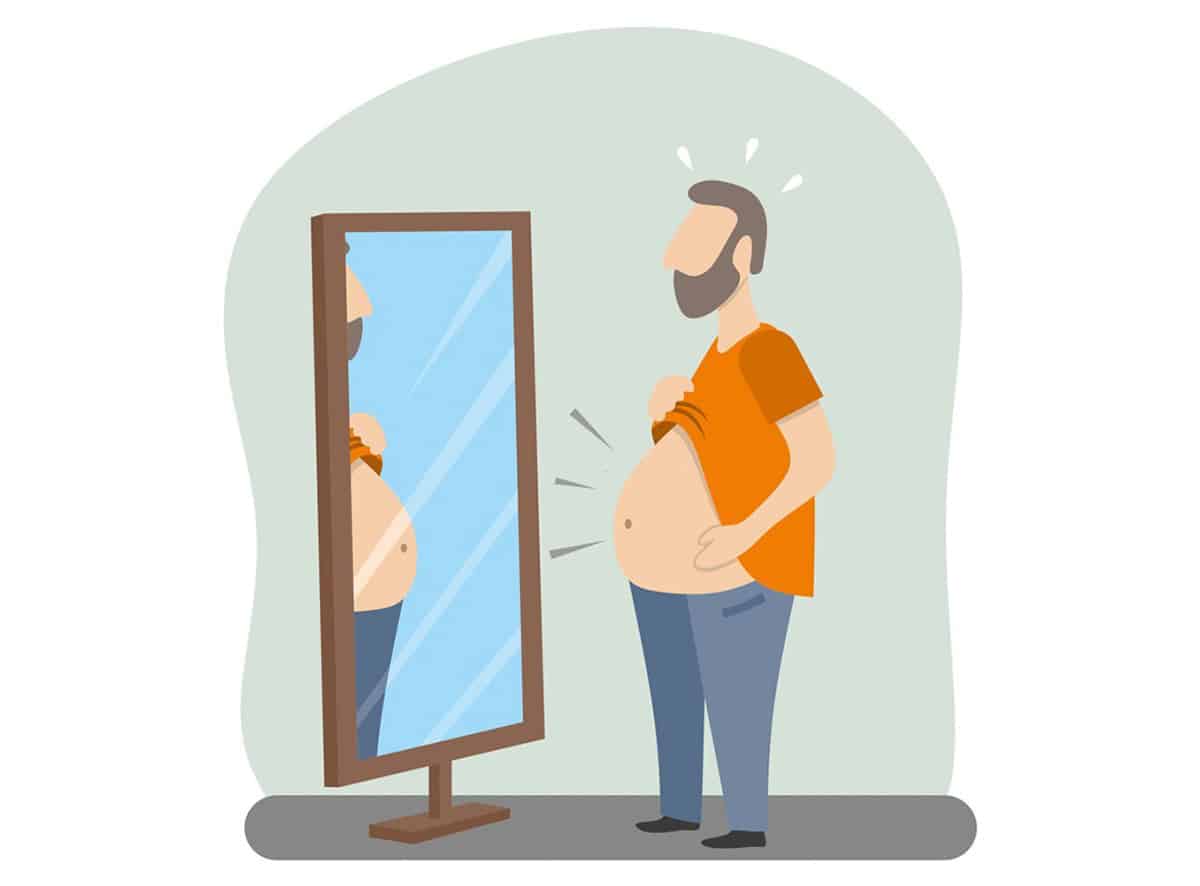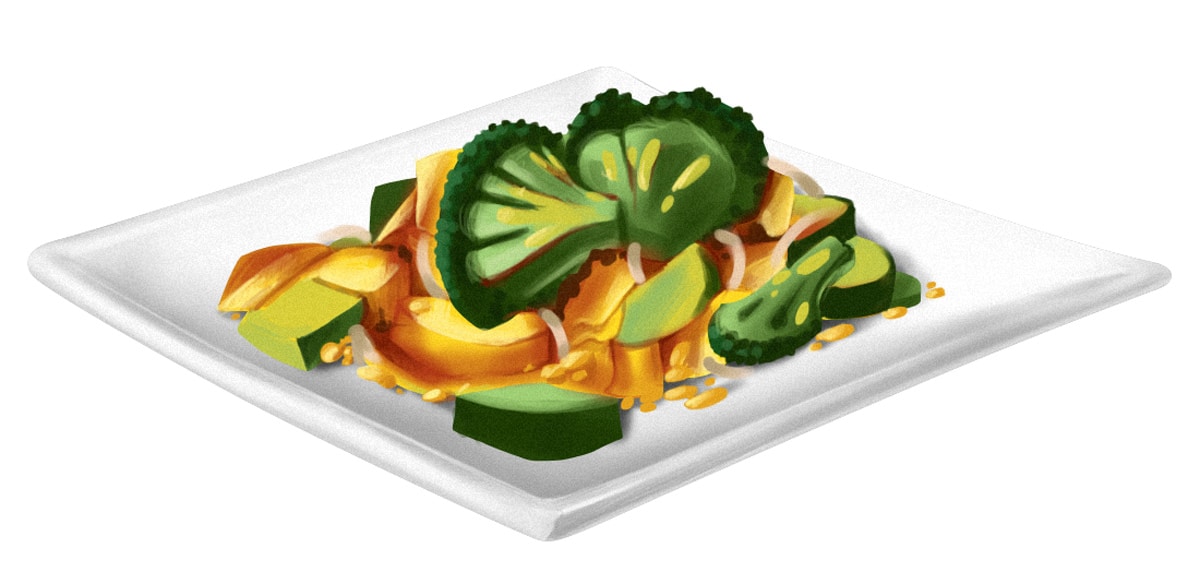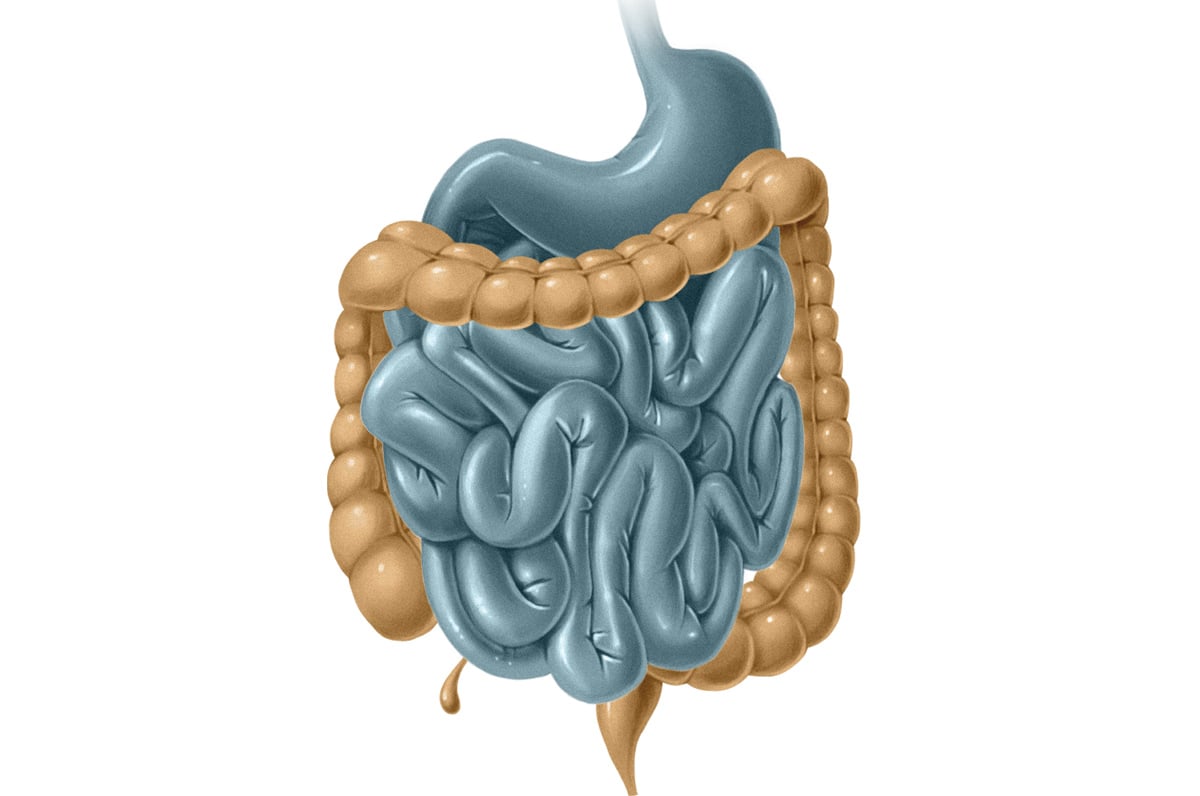
Weight loss is one thing. Preventing weight regain after weight loss is another thing - and if that’s your concern, try here (managing metabolic slowdown after weight loss) or here (dealing with a regain after it’s happened). But guess what’s easier than losing weight and worrying about regain? Never gaining it in the first place.
That’s what this post is about: preventing weight gain for people who are at a healthy weight now, but maybe have a history of obesity in the family or just feel worried about weight gain in the future.
The tricky thing about adult weight gain, and the big challenge in preventing it, is that it often happens very slowly, typically 1 pound or less per year. Because the rate of weight gain is so slow, it’s almost impossible to notice it happening on a day-to-day basis. This is especially true because weight can temporarily fluctuate for all kinds of random reasons that have nothing to do with fat gain, like constipation and water retention. It’s hard to know what’s a random fluctuation and what’s a sign of long-term weight gain in progress.
Considering all the above, the best diet for preventing weight gain would have automatic, built-in safeguards against fat gain that don’t require you to notice and micro-analyze every tiny weight change. And of course, it has to be something sustainable in the long term - which, for most people, means no calorie-counting and little to no hunger.
Paleo ticks all of those boxes. Energy (calorie) balance is a built-in feature of the diet, but even more importantly, it also has benefits for gut health that help set up the microbiome for long-term weight maintenance. And the Paleo/evolutionary approach to stress also addresses another proven cause of long-term weight gain: chronic anxiety and high cortisol levels.
Paleo Nutrition: Built-In Calorie Balance
Calories are complicated; the short answer is that they do matter, but it’s so, so much more complicated than "food - exercise - basal metabolic rate = weight change." That’s why calories do count, but counting calories isn’t a great strategy for weight loss.
Instead of making people count calories, the entire structure of Paleo is designed to effortlessly match your meals to your body’s energy needs. By volume, a Paleo plate is mostly vegetables; by calories, it’s mostly protein, fat, and fiber-rich carbs from whole foods. The entire Paleo meal template is designed to maximize nutrient density and align the desire to eat (hunger/fullness) with your actual energy needs. Basically, it’s set up so that when you eat this way, you can just trust your hunger and listen to your body - no laborious calorie-counting required.

Research backs up the idea that this style of eating helps prevent weight gain. As one review put it, “dietary quality (the types of foods and beverages consumed) influences dietary quantity (total calories).” In the long run, it’s easier to control the types of foods you eat than it is to count every calorie, so controlling dietary quality is a more effective strategy for long-term weight gain prevention.
For example, one review found that eating more fruit and non-starchy vegetables helps prevent weight gain in the long run. Vegetables are low in energy density and high in fiber - both qualities have been associated with preventing weight gain because fiber-rich foods with low energy density make meals feel more satisfying without adding a lot of calories.
“Vegetables are good for you” is so obvious that it almost doesn’t need to be said, but research on preventing weight gain also backs up the Paleo template in other ways. For example, Paleo strongly discourages drinking a lot of liquid sugar in the form of fruit juice. A lot of people assume that fruit juice is healthy, but from a Paleo perspective, fruit juice is a borderline-processed food and it’s just way too easy to get a huge sugar overload from it - essentially, it’s a type of food that jeopardizes some people’s ability to self-regulate hunger and appetite. So as part of the simple hunger-regulation meal template, liquid sugar in the form of fruit juice is discouraged. Research backs this up: fruit juice is also linked to long-term weight gain (not as much as sugary soda, but still to a degree).
The short version: there’s a significant amount of research backing up the Paleo template style of eating for preventing weight gain without requiring an unrealistic amount of diet micromanagement. It’s rich in nutrients like fiber and protein and low in overall energy density and processed, concentrated sugar: these things might be basic, but they really count!
Paleo Keeps your Gut Healthy to Prevent Weight Gain

Calorie balance is all about the quantity of food that you put in your mouth. But Paleo isn’t just good for preventing weight gain because it lets you auto-regulate food quantity - it also helps by changing the way your body handles that food once you swallow it.
Yep, it’s time to talk about gut health! Research shows that bacterial diversity in the gut, which is one big sign of a healthy gut biome, predicts weight gain, loss, and maintenance.
Short-chain fatty acids (SCFAs) produced by gut bacteria also help regulate long-term weight maintenance or gain. In fact, one study found that directly increasing the amount of a short-chain fatty acid called propionate in the gut had all kinds of benefits in human subjects. The people in the study were already overweight, but the propionate stopped them from gaining even more weight. They also lost belly fat, and improved their insulin sensitivity.
So far, there’s decent evidence that a healthy population of gut bacteria helps prevent weight gain in the long term. Now take a look at all the ways that Paleo helps support a healthy and diverse population of gut bugs:
- Lots of different vegetables providing a huge variety of dietary fiber (aka bacteria food)
- Probiotic foods like sauerkraut and kimchi
- Eliminating gut irritants like sugar, refined grains, and industrial oils
Paleo is a pretty great diet for gut health: for more on bacterial diversity, go here, and for gut health in general, try here. By supporting a healthy and diverse population of SCFA-producing bacteria, Paleo helps prevent weight gain in the long run.
The Paleo Approach to Stress Helps Prevent Weight Gain
On the lifestyle front, there’s also an increasing amount of evidence that chronic stress, and particularly high levels of the stress hormone cortisol, contribute to long-term weight gain. (This shouldn’t really be a surprise to anyone who’s gone through a really stressful time at work or school and come out a few pounds heavier).
In this study, cortisol and self-reported stress at the beginning of the study predicted weight gain over 6 months. This study is also interesting: the researchers found that stress and anhedonia (basically the inability to feel pleasure, or the feeling that there’s nothing enjoyable in your life) predicted short-term and long-term weight gain (up to 1 year).
Not long-term enough for you? This study followed people for 5 years and found the same thing: people with high stress levels at the beginning of the study, and people who experienced stressful life events during the study, had much higher risk of weight gain than people with lower stress.
This really shouldn’t come as any surprise to the Paleo crowd: people didn’t evolve for modern stress any more than we evolved for modern food. Paleo has always emphasized the need for good stress management, not just because stress itself is bad for you but also because stress interacts with diet. Chronic stress causes metabolic problems and sugar cravings; on the other hand, eating well can help give your body the nutrition it needs to recover from stress.
Paleo is helpful for long-term weight management because it emphasizes stress management and supplies crucial nutrients for stress recovery.
Summing it Up
Paleo is a great diet for preventing long-term weight gain: it lays a strong foundation with good stress management and solid gut health, and then tops it all off with a food template that auto-regulates calories to your energy needs. It’s still important for everyone to find a version of Paleo that works for them specifically, but the basic principles of the diet align very closely with the research on preventing adult weight gain.





Leave a Reply